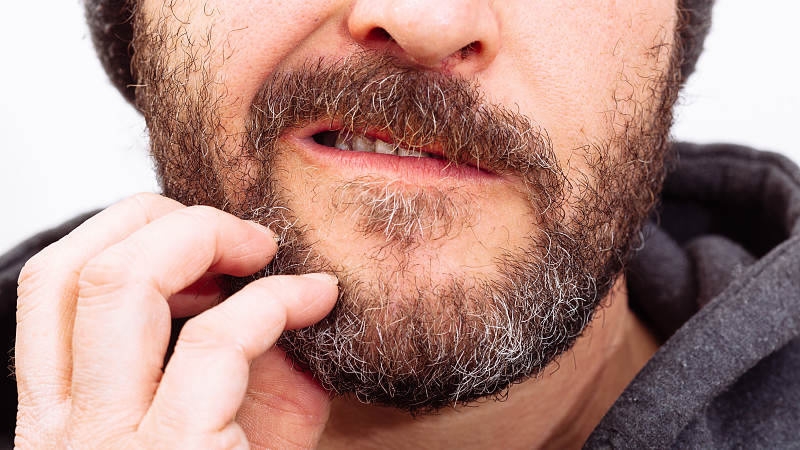
Health
18:56, 04-May-2018
Scientists reveal how a light touch causes severe itching
CGTN

American researchers discovered, in mice, why a touch can cause severe itching for some elderly people or those with dry skin, thus providing some possible therapeutic targets.
A study published in the journal Science on Thursday indicated that itching caused by touch was directly related to the number of touch receptors embedded in the skin and the fewer the receptors, the more likely it was that touching would induce itching.
Usually, anti-itch treatments, including hydrocortisone, don't provide much relief for this type of itching.
Researchers from Washington University School of Medicine discovered the number of touch receptors called Merkel cells in the skin declined as the animals aged. They also found fewer of these touch receptors in animals with dry skin.

Itching caused by touch was directly related to the number of touch receptors embedded in the skin and the fewer the receptors, the more likely it was that touching would induce itching, researchers indicated. /VCG Photo
Itching caused by touch was directly related to the number of touch receptors embedded in the skin and the fewer the receptors, the more likely it was that touching would induce itching, researchers indicated. /VCG Photo
Not having as many Merkel cells made itch problems more likely when the animals were poked with a hair-like nylon device that scientists use to study itch responses, according to the study.
"What exactly Merkel cells do has not been clear, but our findings suggest they help control the itch response. When you lose these cells, their ability to inhibit itch also is lost," said senior investigator Hu Hongzhen, an associate professor of anesthesiology who conducted research as part of the university's Center for the Study of Itch.
The researchers turned to genetically engineered mice whose Merkel cells could be activated with a chemical compound.
It revealed that when the animals were given the compound, they were less likely to scratch when touched with the hair-like device.
"This gives us hope that if we can control the activity of the Merkel cells themselves, we may be able to control this type of itching," said the paper's first author Feng Jing, a postdoctoral fellow at the university's School of Medicine.
The researchers also identified a second potential therapeutic target, a protein on the Merkel cells that appears to control itch.
The protein, called Piezo2 or Piezo Type Mechanosensitive Ion Channel Component 2, is made on the membranes of the cells.
In the mouse experiments, the researchers found that the Piezo2 protein played a role in controlling Merkel cells as they tamped down itch.
Hu told Xinhua that since Piezo2 and Merkel cells play an important role in mechanical itching, targeting those that are signaling might be a therapy for chronic itching symptoms.
(Top image: VCG Photo)
Source(s): Xinhua News Agency

SITEMAP
Copyright © 2018 CGTN. Beijing ICP prepared NO.16065310-3
Copyright © 2018 CGTN. Beijing ICP prepared NO.16065310-3